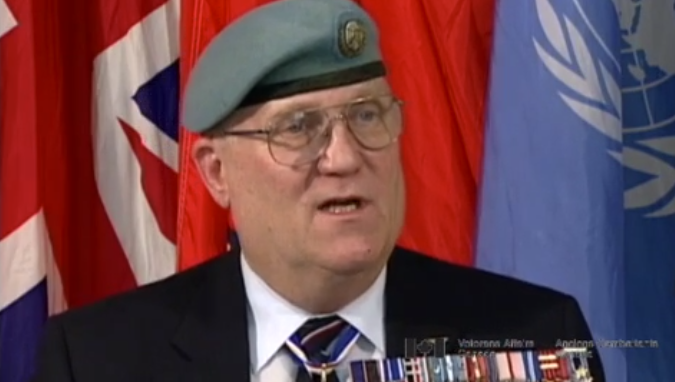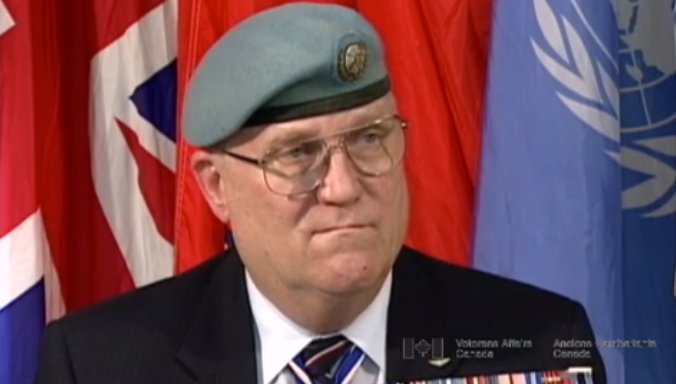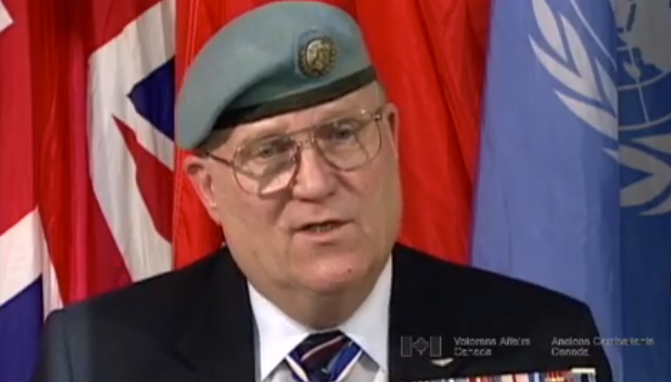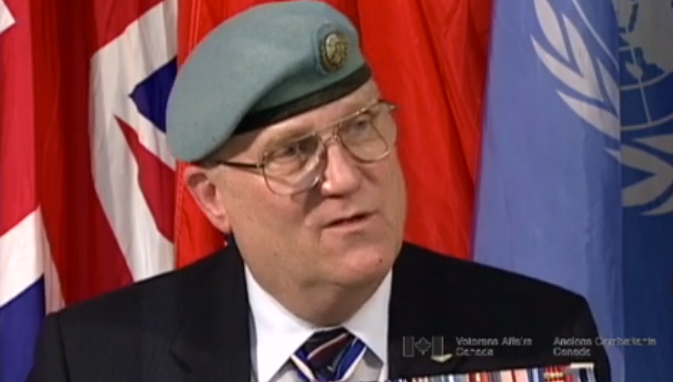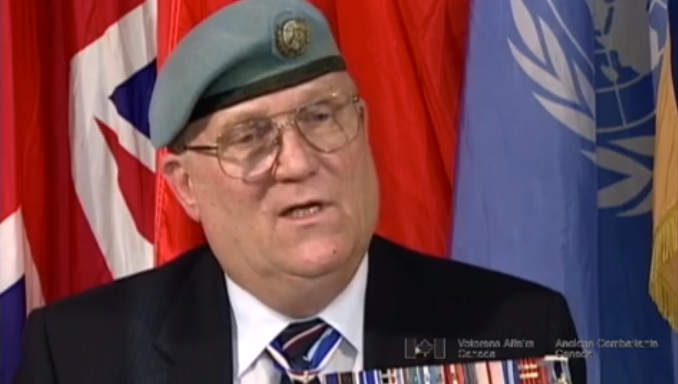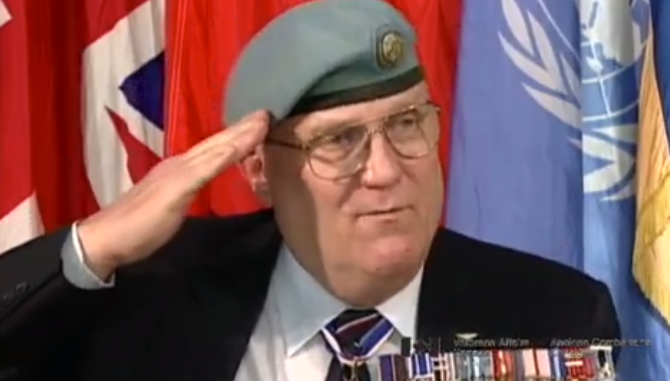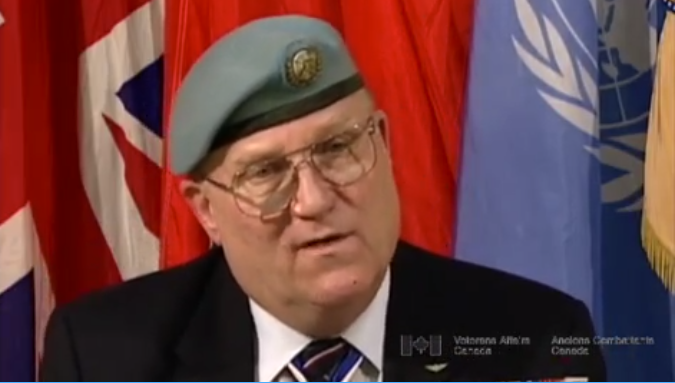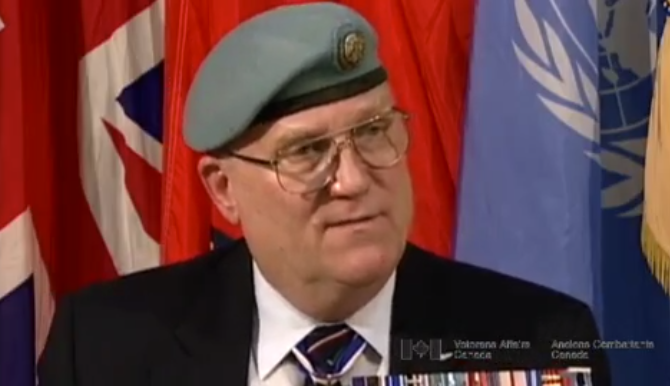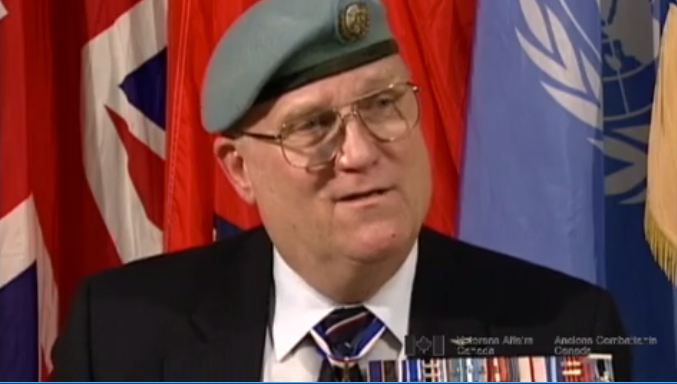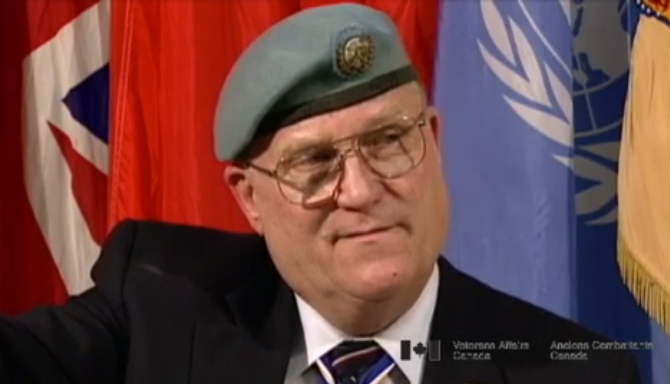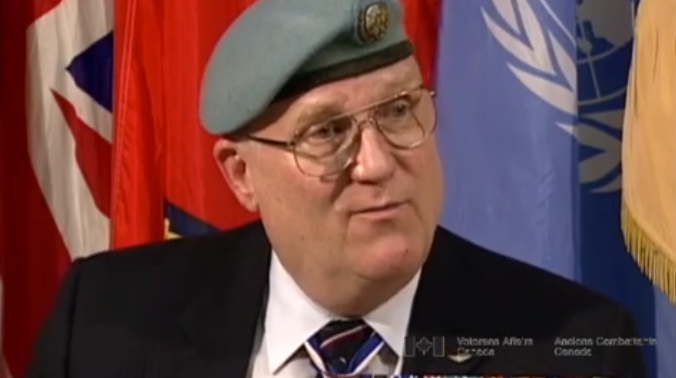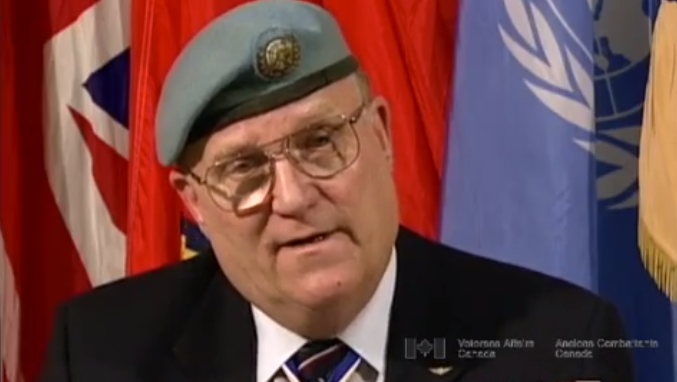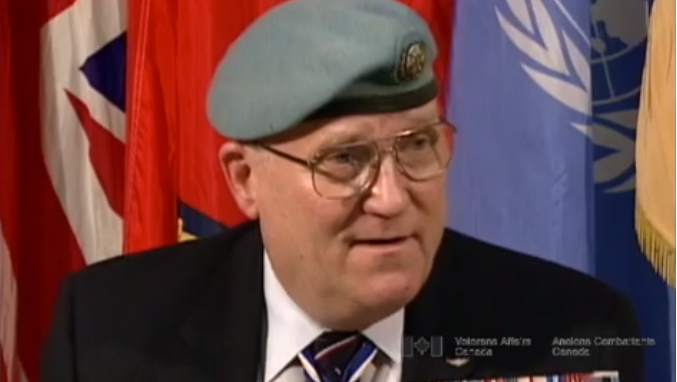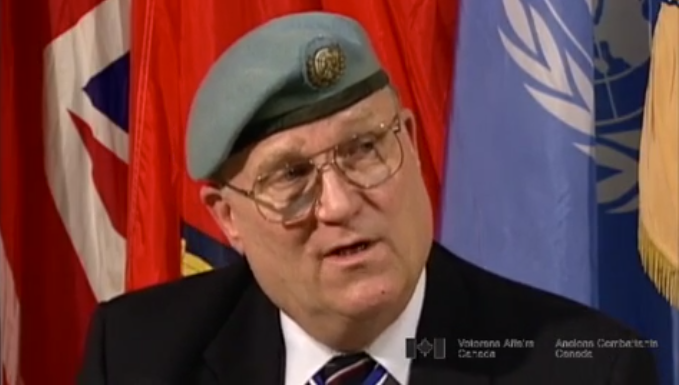Role in Golan Heights
Heroes Remember
Role in Golan Heights
Transcript
Description
Mr Ethell talks about his role in the Golan Heights with the United Nations as the Senior Canadian.
Donald Stewart Ethell
Donald Stewart Ethell was born in July 1937 and was raised in Victoria, BC. His father was a Veteran of both the First and Second World Wars. His mother was a nurse. He and his sister attended boarding school because of his parents' jobs and he was only home at Christmas and during the summer. His mother passed away when Mr. Ethell was 10 years old.
When he enlisted, Mr. Ethell joined the Queen's Own Rifles in Calgary. After several years of serving as an infantryman he was recommended for the officer training. Mr. Ethell graduated from the program and rose to the rank of Colonel. He went on to command Canadian, and United Nations, forces in various missions all over the world. In the mid 1990s, Col. Ethell retired with over thirty-five years of distinguished service.
Meta Data
- Medium:
- Video
- Owner:
- Veterans Affairs Canada
- Duration:
- 02:44
- Person Interviewed:
- Donald Stewart Ethell
- War, Conflict or Mission:
- Canadian Armed Forces
- Location/Theatre:
- Golan Heights
- Branch:
- Army
- Units/Ship:
- Queen's Own Rifles of Canada
- Rank:
- Colonel
Related Videos
- Date modified:



